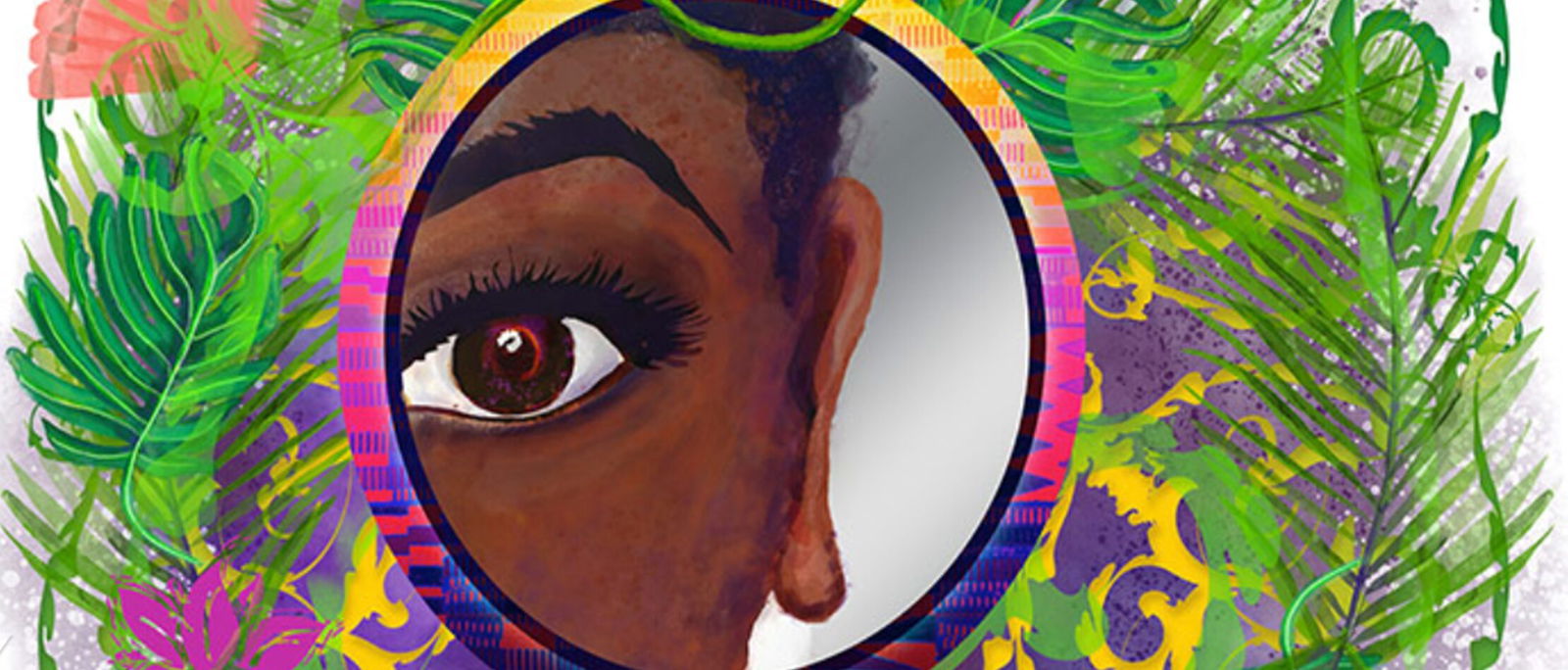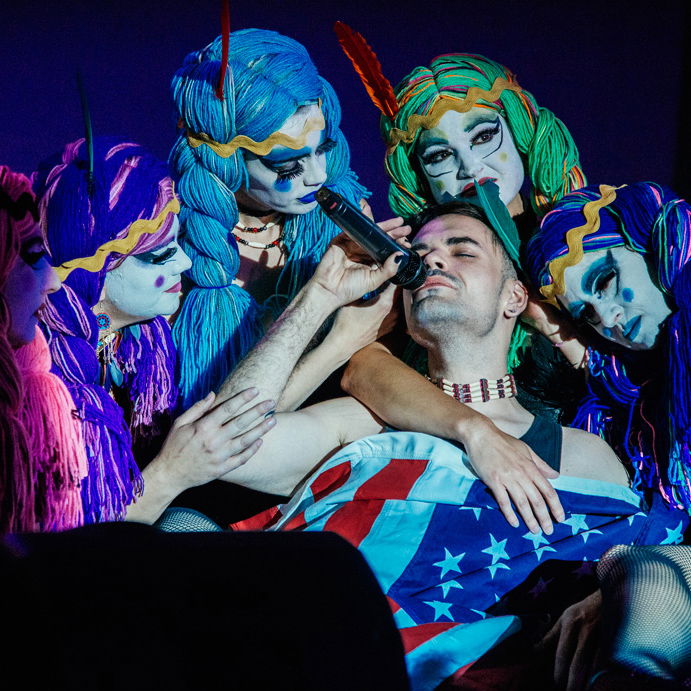I’m sitting in a rehearsal hall at this production’s first table read and I know nothing except the title: School Girls, Or: The African Mean Girls Play . I picked to write about this particular show on a whim. Like the few things I get to say yes to these days, it aligned with my increasingly impossible calendar, and I liked the title – what somewhat sociopathic queer doesn’t find their mitochondrial DNA tingling at the slightest mention of the “mean girls” oeuvre, whether we’re talking about Heathers , or The Craft , or Jawbreaker , or Mean Girls itself?
The reading starts and I pull out my phone to take notes, ever the late-phase millennial. The first thing I notice is how funny this show is, and how fantastically these actors and their laughs commingle. When they start singing The Greatest Love of All as a group I feel like I’m a witness to a sleepover instead of a play rehearsal. Nobody can stop giggling. Then we’re introduced to a new character in the ensemble: light-skinned, American transplant Ericka – who the script eventually puts forward as the school’s candidate for Miss Ghana 1986 – and Head Mean Girl, the dark-skinned, Ghanaian Paulina asks her: “So. Are you a white?”
Eloise, the beauty queen from twenty years prior – somewhere between Grace Jones and a dignitary – is scouting the school for “girls that fall on the other end of the African skin spectrum” with the support of “big money,” and Ericka just might fit the ticket. She’s got the right look, is just Ghanaian enough, and this just got too real. I look to my phone. Twitter’s open – not because I’m waiting for the latest from the Orange Tweeter, but because, like any late-phase millennial, I chronically open and close the same apps over and over again as a nervous tick. I call it the App Loop. I follow Native Twitter – or Indian Twitter if you’re one of us – and I see a tweet designed to pit “white NDNs” against “brown NDNs.” Like most illusory discourse on the Internet, this statement deals in absolutes, in binaries, and is mean to validate one position while cancelling out the other: one is visible, one isn’t. One is Indian, the other isn’t.
“So. Are you a white?”
Colorism . It’s what this play is about.
Am I feeling triggered? Not at all. I only wrote a whole play about it: the sense of invisibility, of not measuring up, of not being real, invalid. Of walking down the street and being read as a white person because I inherited my mother’s skin tone (“But come on Anthony,” I think, “that means you can walk down the street safely, unlike so many others, so poor you, big whoop.”). It’s the whole reason I invented Carla Rossi – my drag clown ultimate form – to put on that toxicity, that projection, and lampoon it – to own it and hold myself accountable. But no matter how much I try to take it and laugh, I can never completely stop the poison from seeping down my ears and into my brain. Fragility, baby.
I look at Morgan Walker, who plays Ericka and channels her character’s letdown and insecurity on her face, and I see me. I look at Drea Vernae, who plays Paulina and channels her character’s disappointment and insecurity on her face, and I see my brothers – their dark skin, their long black hair, their upbringing and current homes on the Warm Springs Rez. They’ve been making music and touring for decades. Me? I’ve only been doing this for one, and I’ve already won mid-career-level awards, performed internationally, and happily taken so many opportunities that I know wouldn’t be offered to me if I looked less like me and more like them.
I can’t help but feel for Paulina, and I can’t help but feel for Ericka. Privilege is a problem. I believe a microphone, a play, an exhibition, a blog post, is a responsibility to honor and do right by those we came from, those who don’t have a microphone or an exhibition or an Internet following. It’s our duty to use our privilege to speak up for them and ultimately find them microphones and plays and exhibitions and followings. But the lateral pain – that dismissal, or that feeling of less-than, of enemy, of “oh god, was my friend subtweeting about me when she wrote that about Pretendians?” – still hurts. And it hurts just as much knowing it pays forward one hundred more times worse for our family that doesn’t have the passing privilege that makes us Other to ourselves.
It’s something racialized communities don’t know how to talk about. We’re still trying to figure it out. In the end, it’s all Colonialism, isn’t it? It’s all genocide. It’s everything and more that was insidiously intended to happen when science was perverted for the invention of race, so that the Overseer wouldn’t have to be the only one policing us—
—because eventually we’ll do it ourselves.



